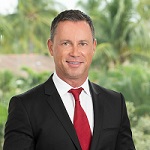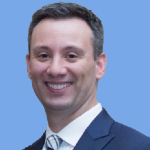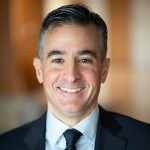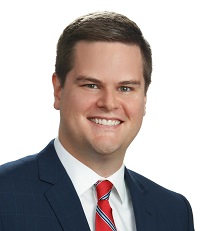TSL Feature Articles
Click on the link below to meet some of the “difference makers” in the secured finance community. This issue of The Secured Lender celebrates those who are having a profound impact on both their communities and their organizations.
Previous TSL Articles
-
 Interview with Marius Silvasan, CEO of eCapital
Interview with Marius Silvasan, CEO of eCapital
Last month, eCapital Corp., a leading capital solutions provider for small and medium-sized businesses in North America and the UK, announced it achieved substantial growth in 2020 and consolidated a total of eight acquired entities into a simplified corporate structure.
Marius Silvasan, CEO of eCapital, is responsible for leading the company’s overall vision and direction, as well as developing the overarching strategies that support its corporate goals. In this role, Silvasan balances the interests of a diverse investment community with the operational model and resources required to become a global leader in alternative lending.
-
 Should Banks Combine Their ABL and Factoring Groups?
For most banks with specialty finance groups the answer is no for several clear-cut reason, but it is not that simple of an answer for all banks with specialty finance divisions. This question is being hotly debated at the lower end of the market as many non-banks have successfully utilized one business development (BDO) team to sell both products. Utilizing one BDO team to sell two products can work when there is a similar borrower profile that could dictate the credit going either way and a credit and portfolio team that is well trained in both products. Good BDOs, both bank and non-bank alike, can use product, pricing and market flexibility to their advantage while utilizing one central back office for underwriting and portfolio management. Why then do banks keep these groups separate? The reason most banks don’t and shouldn’t combine ABL and factoring groups is that for most groups the underlying businesses, facility sizes, sourcing channels and credit risk are significantly different enough to merit separate divisions.
Should Banks Combine Their ABL and Factoring Groups?
For most banks with specialty finance groups the answer is no for several clear-cut reason, but it is not that simple of an answer for all banks with specialty finance divisions. This question is being hotly debated at the lower end of the market as many non-banks have successfully utilized one business development (BDO) team to sell both products. Utilizing one BDO team to sell two products can work when there is a similar borrower profile that could dictate the credit going either way and a credit and portfolio team that is well trained in both products. Good BDOs, both bank and non-bank alike, can use product, pricing and market flexibility to their advantage while utilizing one central back office for underwriting and portfolio management. Why then do banks keep these groups separate? The reason most banks don’t and shouldn’t combine ABL and factoring groups is that for most groups the underlying businesses, facility sizes, sourcing channels and credit risk are significantly different enough to merit separate divisions. -
 Takeaways from SFNet's 2021 Asset-Based Capital Conference
Takeaways from SFNet's 2021 Asset-Based Capital Conference
SFNet's Asset-Based Capital Conference was held virtually March 9-11 and offered professionals in the asset-based lending, alternative asset management, private debt, private equity, distressed debt and service providers to discuss the rapidly changing economic environment and its impacts on portfolios and business opportunities. With nearly 1300 attendees, the virtual event offered more content to a broader audience than in years’ past.
Many panelists were optimistic that there would be a stronger and quicker than expected recovery in 2021. While the COVID-19 pandemic was unexpected, another playbook has been written and the industry once again showed how to be resilient and adjust to “the new normal.”
“The SFNet ABCC conference did a great job of balancing both education and networking,” said attendee Nancy Kalman, senior business development officer, United Capital Funding. “The distinguished panels were very informative with what our industry looks like today. I met several new people in the networking rooms, along with setting up many individual meetings. I even received a lead from this that looks like we will be able to fund.”
-
 Young Professionals in a New Era of Networking
Even the basic handshake has changed. Scanning the room; trying to identify the individual you are trying to meet, through a mask in a sea of masks, generally becomes a guessing game. When you finally lock eyes with the individual on the other side; you extend your hand out- open faced- only to be met with a closed fist and the awkward “who switches” silent discussion ensues. When your hands finally come to an agreement of where to meet after some laughter, you can now begin what is the new normal — an overly distanced discussion where raising your voice is needed to make sure your counterpart can hear you amongst the other overly raised voices.
Young Professionals in a New Era of Networking
Even the basic handshake has changed. Scanning the room; trying to identify the individual you are trying to meet, through a mask in a sea of masks, generally becomes a guessing game. When you finally lock eyes with the individual on the other side; you extend your hand out- open faced- only to be met with a closed fist and the awkward “who switches” silent discussion ensues. When your hands finally come to an agreement of where to meet after some laughter, you can now begin what is the new normal — an overly distanced discussion where raising your voice is needed to make sure your counterpart can hear you amongst the other overly raised voices. -
 Interview with Jim Cretella, Chair of Otterbourg’s Alternative and Specialty Finance Practice Group
Interview with Jim Cretella, Chair of Otterbourg’s Alternative and Specialty Finance Practice Group
In March, Otterbourg P.C. announced that James M. Cretella was named Chair of the firm’s Alternative and Specialty Finance Practice Group. A member of the firm’s Finance Department, Cretella represents lenders, factoring companies and other finance companies, as well as borrowers, in a variety of transactions.
Cretella has practiced at Otterbourg for his entire career and his experience encompasses financial transactions across a broad range of industries, including staffing, technology, transportation, oil and gas, and government contracting. His areas of focus include asset-based lending, supply chain finance, trade finance and specialty finance. He often acts as “outside in-house counsel” to finance companies and specialty lenders.
Cretella is a 2016 winner of the Secured Finance Network’s 40 Under 40 Awards.
Here he discusses his role and how the industry has evolved since he started.
-
 Higher Education Under Pressure – Options for Struggling Institutions
Many higher education Trustees and executive leaders need to recognize that their communities must confront the early stages of a long-term restructuring. The upcoming transition is similar to the long-term restructuring process now being addressed by the retail and healthcare industries. The difficult landscape that colleges and universities must contend with didn’t just materialize – it has been a long time in the making.
Higher Education Under Pressure – Options for Struggling Institutions
Many higher education Trustees and executive leaders need to recognize that their communities must confront the early stages of a long-term restructuring. The upcoming transition is similar to the long-term restructuring process now being addressed by the retail and healthcare industries. The difficult landscape that colleges and universities must contend with didn’t just materialize – it has been a long time in the making. -
 Off Target: How the Main Street Loan Program Missed the Mark
Off Target: How the Main Street Loan Program Missed the Mark
At the 2004 Athens Olympics, American air-rifle shooter Matt Emmons, the reigning world champion in the 50-meter three-position event, held a seemingly insurmountable lead. Going into his final shot, Emmons was in first place and needed only a mediocre score to win gold. Emmons aimed, fired, and hit his target – the wrong target, one lane over. He received no score for that shot and finished in eighth place.
Emmons’ mistake illustrates the importance of aiming at the right target. In April of 2020, amid the COVID-19 pandemic, the Federal Reserve and the Treasury Department announced the Main Street Loan Program (the “MSLP”), which was designed to provide emergency liquidity to small and mid-sized businesses. Although well-intentioned, the MSLP, like Emmons, was aimed at the wrong target, and ultimately missed the mark.
-
WISF October Networking Event
Screen shots of the various First Place Teams from the Go Game festivities held on October 27. Attendees had a great time competing in trivia and lip syncing competitions.
-
SFNet WISF Career Corner
This is a new feature providing advice from WISF members to young professionals on a specific topic. We need your input. If you have a question you would like to see answered in this column, please submit to Michele Ocejo at mocejo@sfnet.com.
Dear WISF,
“Once you are established within a job and/or have already experienced some degree of internal growth, what additional steps would you recommend to continue career growth and development? Early in the career, there are multiple paths and opportunities an early career individual can pursue. However, once in the mid-level, the continued growth opportunities may not be as bountiful.”
-
 Tradetech: Part of the 4th Industrial Revolution and Why We Need to Focus on SMEs.
Tradetech: Part of the 4th Industrial Revolution and Why We Need to Focus on SMEs.
The COVID-19 pandemic has had a devastating effect on the global economy and led to paralyzed supply chains, export restrictions and closed borders. This shock brought about several significant changes to a number of industries and accelerated existing trends such as automation, digitalization, supplier base diversification and supply chain operational efficiencies. Cross-border trade is at the center of everyone’s attention.
In This Section
The Secured Lender

SFNet's The Women in Secured Finance Issue
